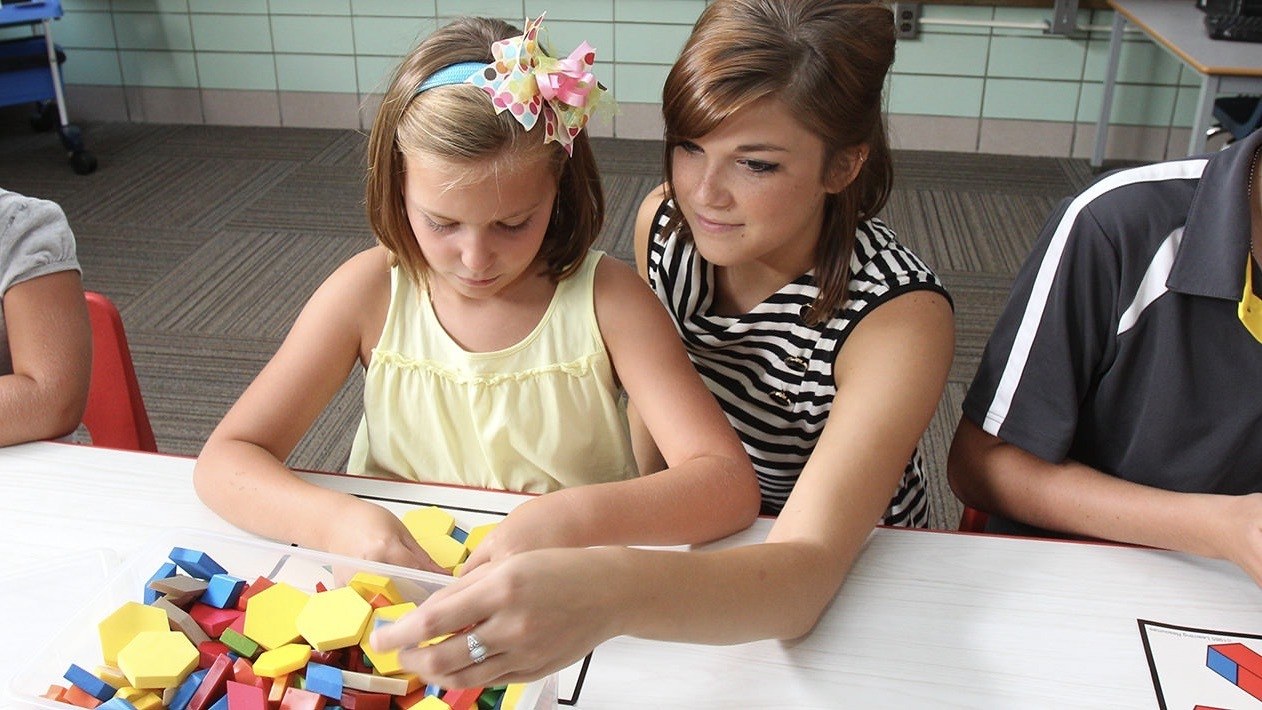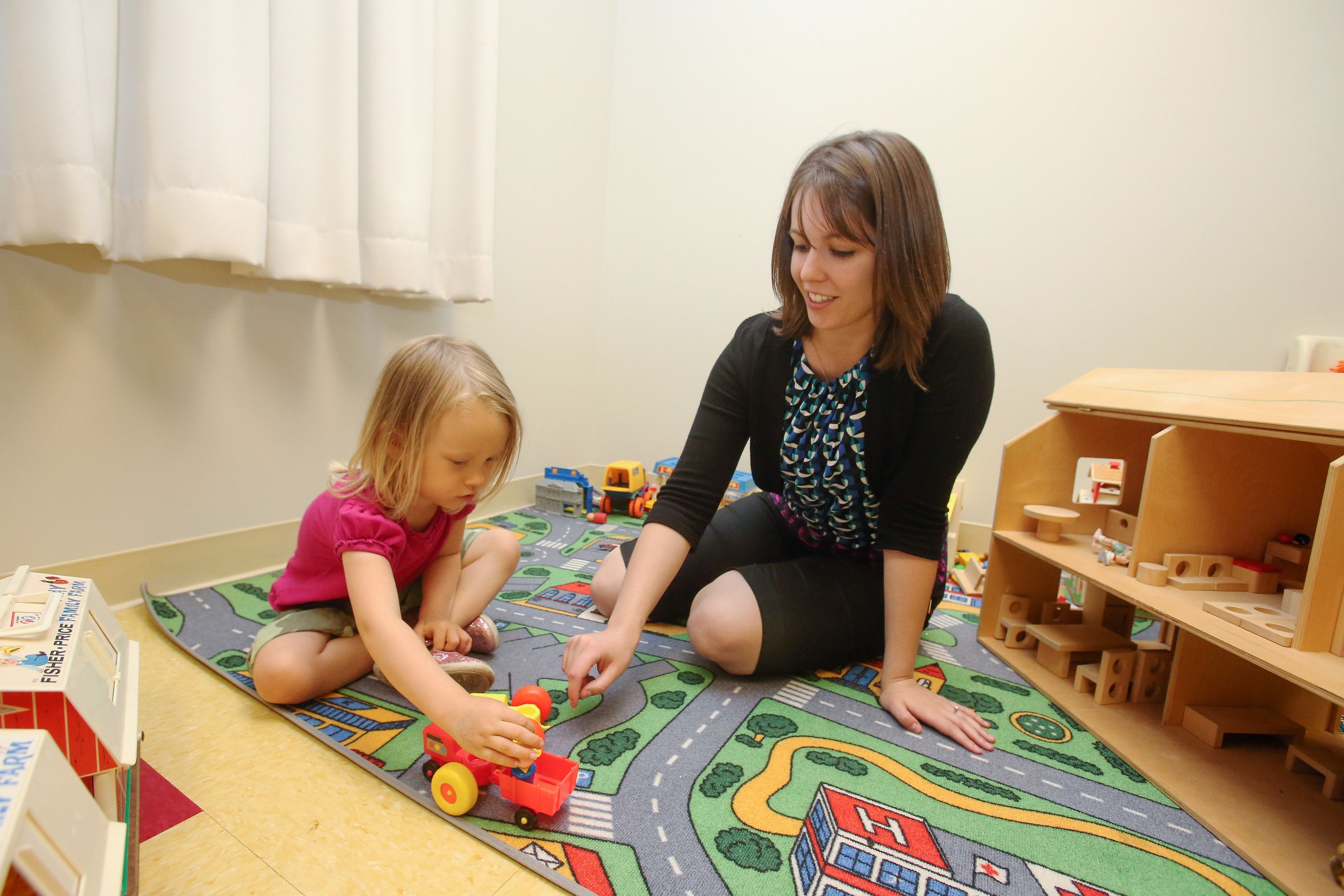Nationally recognized for student experience
The Wall Street Journal

Doctorate
Psychology: Developmental Psychology
The BGSU Psychology Department takes pride in being a true standout in the field for our strong commitment to excellence, innovation and influence. Graduates of our Ph.D. program in psychology with a specialization in developmental psychology become change-drivers and work to ensure people reach their full potential in all stages of growth.
Our students gain a full understanding of how people grow, change and adapt across the lifespan. They receive personalized attention and work closely with leading faculty and professionals in the field.
Developmental psychology students also get a solid grounding in research. BGSU has one of the most active psychology research programs and includes studies conducted at the Center for Family and Demographic Research.
BGSU graduates often pursue academic careers as professors or researchers, contributing to groundbreaking insights that further our knowledge of human development. Some find their calling in clinical psychology, applying developmental theories to support individuals through life’s tough challenges and transitions.
Others thrive in educational settings, designing school coursework, interventions and assessment tools that promote healthy growth and development in children and adolescents.
Developmental psychology is one of four specializations within the Ph.D. psychology program at BGSU. The other three are clinical psychology, industrial and organizational psychology, and cognitive and neural sciences.
Program highlights
- Combined master’s and doctoral degree program. Most careers in developmental psychology require an advanced degree. In the BGSU program, you’ll earn a combined master’s and doctorate in developmental psychology in about 4.5 years.
- Renowned faculty, real-world impact. Learn from leading psychologists who are acclaimed researchers and committed mentors. Their expertise spans developmental stages and specializations – from early childhood to gerontology. This comprehensive educational experience prepares you for diverse career paths.
- Individualized program of study. Each student works closely with a sponsor or chairperson whose special competence matches their interests. Low student-faculty ratio allows for extensive supervision and individualized attention, ensuring graduates are well-prepared for careers in both academic and applied settings.
- Excellence in research. Research is integral to developmental psychology studies. BGSU has one of the most active psychology research programs. This includes studies conducted at the Center for Family and Demographic Research, which focuses on family demography, sexual and reproductive health, health disparities and adolescent and young adult development.
- Teaching experience. Developmental psychology students get leadership and learning experience teaching undergraduate courses.
#1 public university in Ohio for career prep
The Wall Street Journal
Career opportunities
As society increasingly confronts complex issues from mental health crises to educational disparities, the need for skilled developmental psychologists has never been greater. Demand for psychologists is expected to grow faster than the average for all jobs over the next decade (U.S. Bureau of Labor Statistics).
Traditionally, graduates of developmental psychology Ph.D. programs have landed careers helping children and adolescents. This need is still growing. Yet as life expectancies have increased, developmental psychologists are broadening their prospects to fields focused on adulthood and aging populations.
In addition to roles in research, education and counseling, those with a Ph.D. in developmental psychology are valuable in government and nonprofit organizations. They promote evidence-based policies in healthcare, social services and education.
Recent graduates have gone on to prominent positions at California State University, the Colorado Department of Healthcare Policy and Financing, Lebanon Valley College and the University of Findlay. They’re also sought after in the corporate sector for their expertise informing product development, consumer behavior and human resource practices.
Career paths
- Developmental psychologist
- Educational psychologist
- School psychologist
- Research psychologist
- Human development consultant
- Clinical psychologist
- Social worker
- Child development specialist
- University professor
- Industrial psychologist
Quick Facts from the Bureau of Labor Statistics
Curriculum
The research-oriented curriculum for the BGSU doctorate in psychology with a specialization in developmental psychology offers a comprehensive blend of core courses, specialized electives and hands-on research experiences – all designed to cultivate your expertise and job-readiness.
Students take foundational courses such as Cognitive Development, Lifespan Development and Social and Personality Development. From there, you can tailor your 36 elective credit hours by choosing diverse courses in clinical, cognitive, industrial-organizational, neuroscience and social psychology. This flexibility ensures students can delve deeply into their areas of interest while gaining a holistic view of the field.
Collaborative work with faculty in multiple areas of the department is strongly encouraged.
Our Ph.D. in psychology coursework, research and independent study plans not only meet rigorous academic standards but also ensure that graduates emerge as well-rounded scholar-practitioners, ready to advance knowledge and practice in developmental psychology.
Culminating experience
Doctoral students engage in independent research that culminates in a robust dissertation component, with defense and manuscript published on OhioLINK.

Sample courses
- Statistical Theory I & II
- Cognitive Development
- Social and Personality Development
- Behavior Pathology
- Basic Neuroscience and Cognition
#1 university in Ohio – big or small, public or private – students would choose again
The Wall Street Journal
The developmental psychology program is part of the Department of Psychology in the BGSU College of Arts and Sciences.
Accreditation
Bowling Green State University [BGSU] is accredited by the Higher Learning Commission. BGSU has been accredited by the Higher Learning Commission since 01/01/1916. The most recent reaffirmation of accreditation was received in 2022-2023, with our next reaffirmation of accreditation scheduled for 2032-2033. Questions should be directed to the Office of Institutional Effectiveness.
Request Information
Updated: 11/25/2025 02:26PM

